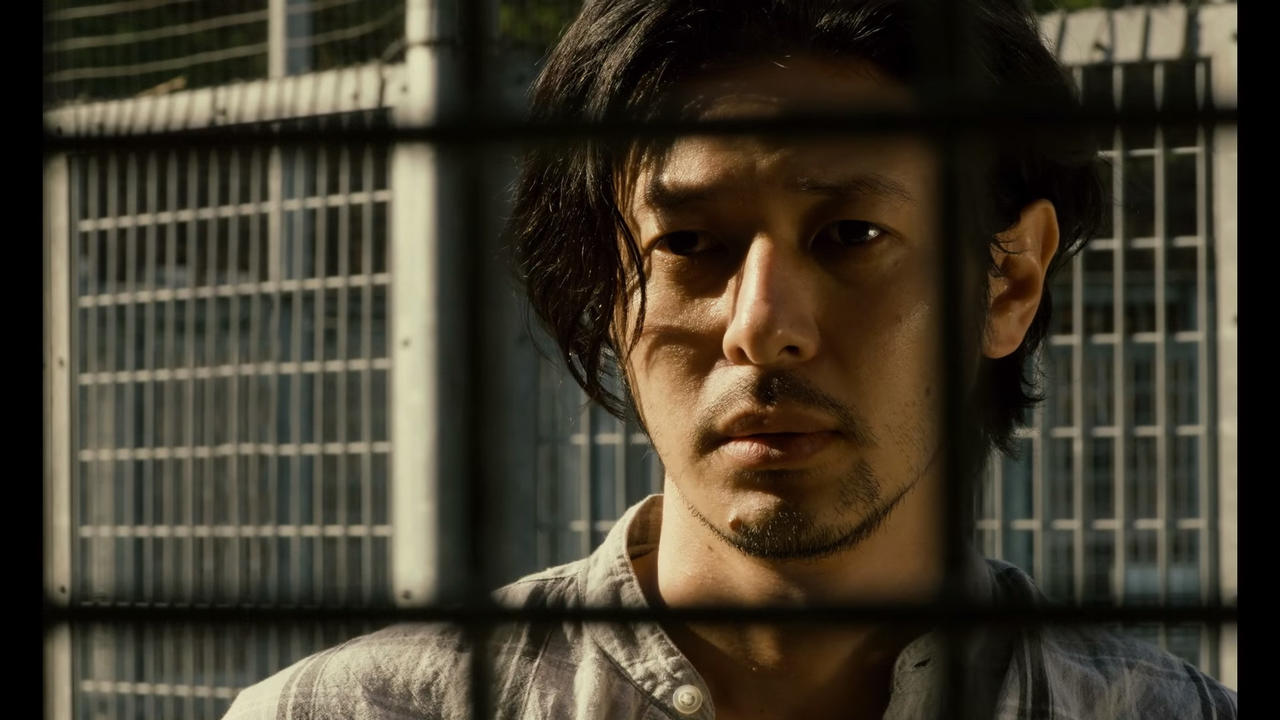 Nobuhiro Yamashita may be best known for his laid-back slacker comedies, but he’s no stranger to the darker sides of humanity as evidenced in the oddly hopeful Drudgery Train or the heartbreaking exploration of misplaced trust and disillusionment of My Back Page. One of three films inspired by Hakodate native novelist Yasushi Sato (the other two being Kazuyoshi Kumakiri’s Sketches of Kaitan City and Mipo O’s The Light Shines Only There), Over the Fence (オーバー・フェンス) may be among the less pessimistic adaptations of the author’s work though its cast of lonely lost souls is certainly worthy both of Yamashita’s more melancholy aspects and Sato’s deeply felt despair.
Nobuhiro Yamashita may be best known for his laid-back slacker comedies, but he’s no stranger to the darker sides of humanity as evidenced in the oddly hopeful Drudgery Train or the heartbreaking exploration of misplaced trust and disillusionment of My Back Page. One of three films inspired by Hakodate native novelist Yasushi Sato (the other two being Kazuyoshi Kumakiri’s Sketches of Kaitan City and Mipo O’s The Light Shines Only There), Over the Fence (オーバー・フェンス) may be among the less pessimistic adaptations of the author’s work though its cast of lonely lost souls is certainly worthy both of Yamashita’s more melancholy aspects and Sato’s deeply felt despair.
Shiraiwa (Joe Odagiri) wants nothing to with anything or anyone. His wife has divorced him and he doesn’t see his child but he still wears his wedding ring and feels like a married man, unable to move on from the suspended end of his marriage. Having no place else to go, Shiraiwa has come back to his home town of Hakodate – a run down harbour town on the southern point of Hokkaido. For no particular reason other than it allows him to continue claiming unemployment benefits, he’s enrolled in a back to work scheme at a vocational school which teaches carpentry skills. Keeping himself aloof and explaining to anyone that takes an interest that he’s “human scum” and they’d best keep away, Shiraiwa is eventually convinced to go drinking with fellow student Dajima (Shota Matsuda) at his favourite bar.
Dajima introduces him to a much needed motivating factor in his life, a free spirited hostess girl with the strangely manly name of Satoshi (Yu Aoi). Satoshi argues loudly with customers in the street and dances with wild abandon in the middle of a room of quiet drinkers but on getting to know her better her rapidly changeable moods and occasional fits of violent despair speak of a more serious set of problems which Satoshi herself feels as ill equipped to deal with as Shiraiwa has been with the failure of his marriage.
Failure is something which hangs heavily over the film as the grey dullness and stagnant quality of the harbour town seems to bear out its inescapability. Unsurprisingly, in one sense, everyone at the vocational school is there because they’ve already failed at something else though some of them have more success with carpentry than others. Shiraiwa takes the work seriously even if he doesn’t really see himself heading into a career as a carpenter but there’s an additional reason why the environment is so oppressive and the uniforms not unlike those of a prison. Everyone is here because they have to be and they can’t leave until they’ve completed their re-education. The teacher at the school is always quick to remind everyone how it was when he worked in the field, only he never did, he’s a failure and a prideful fantasist too.
The other men face various problems from age and dwindling possibilities, to intense pressure to succeed leading to eventual mental breakdown, and trying to build a new life after leaving the yakuza, but Shiraiwa is unique among them in the degree to which he has internalised his essential failures. Having convinced himself that he’s “human scum” Shiraiwa wants everyone else to know too as he intentionally refuses any sense of forward motion or progress in his life to reassure himself that there is no possible future for him. Satoshi has convinced herself of something similar though her dissatisfaction and fear of rejection are deeply ingrained elements of her personality which are permanent personal attributes. Pushing Shiraiwa to address the questions he could not bear to face, she helps him towards a more positive position whilst simultaneously refusing any kind of reciprocal self analysis.
There’s an additional cruelty in Satoshi’s manic declaration that Shiraiwa drove his wife insane that’s in part self directed and raises a mutual anxiety between them as Shiraiwa may be falling for a woman who already feels herself to be “mad”. Satoshi’s strange impressions of birds and animals point to her closeness to nature and separation from conventional society but also perhaps of her fear of hurting other people through her periodic descents into self destructive cruelty. As caged as the animals in the zoo where she works, Satoshi decides to try letting them out only to discover that the eagle has no desire to leave his perch.
Hakodate becomes a kind of purgatory for all as they each attempt to conquer their demons and win the right to move on to better and brighter things. Melancholy as it is, Yamashita adds in touches of his trademark surrealist humour but even in its sadness Over the Fence leaves room for hope. Climaxing in an inconsequential yet extremely important softball game the meaning of the film’s title becomes apparent – you’ll never know if you can hit that ball over the fence until you find the courage to take a swing but you may never be able to find it without the help and support of a kindred spirit.
Over the Fence was screened as part of the Udine Far East Film Festival 2017.
Original trailer (English subtitles)

7 comments